
Caetano Emanuel Viana Teles Veloso is a Brazilian composer, singer, guitarist, writer, and political activist. Veloso first became known for his participation in the Brazilian musical movement Tropicalismo, which encompassed theatre, poetry and music in the 1960s, at the beginning of the Brazilian military dictatorship that took power in 1964. He has remained a constant creative influence and best-selling performing artist and composer ever since. Veloso has won nine Latin Grammy Awards and two Grammy Awards. On 14 November, 2012, Veloso was honored as the Latin Recording Academy Person of the Year.

Gilberto Passos Gil Moreira, is a Brazilian singer-songwriter and politician, known for both his musical innovation and political activism. From 2003 to 2008, he served as Brazil's Minister of Culture in the administration of President Luiz Inácio Lula da Silva. Gil's musical style incorporates an eclectic range of influences, including rock, Brazilian genres including samba, African music, and reggae.

Os Mutantes are an influential Brazilian rock band that were linked with the Tropicália movement, a dissident musical movement during the Brazilian dictatorship of the late 1960s. The band is considered to be one of the main groups of Brazilian rock. Heavily influenced by Anglo-American psychedelic pop, they bridged Brazilian sensibilities together with studio trickery, feedback, distortion, and musique concrète. They released their now-acclaimed self-titled debut album in 1968.
Tropicália, also known as tropicalismo, was a Brazilian artistic movement that arose in the late 1960s. It was characterized by the amalgamation of Brazilian genres—notably the union of the popular and the avant-garde, as well as the melding of Brazilian tradition and foreign traditions and styles. Today, tropicália is chiefly associated with the musical faction of the movement, which merged Brazilian and African rhythms with British and American psychedelia and pop rock. The movement also included works of film, theatre, and poetry.

Gal Maria da Graça Costa Penna Burgos, known professionally as Gal Costa ( ), was a Brazilian singer of popular music. She was one of the main figures of the tropicalia music scene in Brazil in the late 1960s and appeared on the acclaimed compilation Tropicália: ou Panis et Circencis (1968). She was described by The New York Times as "one of Brazil's greatest singers."

Maria Bethânia Viana Teles Veloso is a Brazilian singer and songwriter. Born in Santo Amaro, Bahia, she started her career in Rio de Janeiro in 1964 with the show "Opinião" ("Opinion"), she is "The Queen of Brazilian Music". Due to its popularity, with performances all over the country, and the popularity of her 1965 single "Carcará", the artist became a star in Brazil.

The 4th Annual Latin Grammy Awards were held in Miami at the American Airlines Arena on Wednesday, September 3, 2003. It was the first time the telecast was held outside of Los Angeles. Juanes was the night's biggest winner winning a record five awards including Album of the Year. He tied his own record winning five awards again five years later in 2008. Juan Luis Guerra and Calle 13 also tied this record in 2007 and 2009 respectively.

Preta Maria Gadelha Gil Moreira, known as Preta Gil, is a Brazilian singer and actress. She is the daughter of Gilberto Gil, a musician and former Minister of Culture in Brazil.

The winners of the Second Annual Latin Grammy Awards were announced during a press conference on Tuesday, October 30, 2001 at the Conga Room in Los Angeles, California. The conference, which was broadcast live on the internet, was hosted by Jimmy Smits and Paul Rodriguez. Alejandro Sanz was the big winner winning four awards including Album of the Year. Juanes won three awards including Best New Artist.
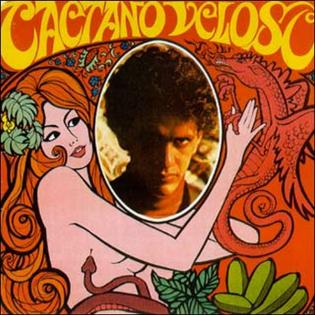
Caetano Veloso is the debut solo album by the artist of the same name, released in Brazil in 1968. He had released Domingo the year before in collaboration with Gal Costa. It was one of the first Tropicália efforts, and features arrangements by Júlio Medaglia, Damiano Cozzella, and Sandino Hohagen, as well as an eclectic assortment of influences, demonstrating the "antropofagia" of the Tropicália movement. Sounds from psychedelia, rock, pop, Indian music, bossa nova, Bahian music and other genres appear on the album. It includes the hit songs "Alegria, Alegria", "Tropicália", and "Soy loco por ti, América".
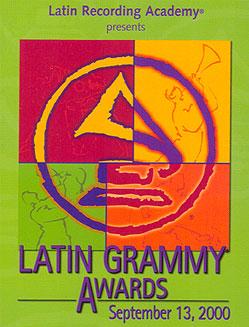
The 1st Annual Latin Grammy Awards were held in Los Angeles at the Staples Center on Wednesday, September 13, 2000. The big winners were Luis Miguel, Santana and Maná with 3 awards; Juan Luis Guerra, Shakira, Fito Páez and Emilio Estefan Jr. received 2 awards each.
José Carlos Capinam, better known as Capinam or Capinan, is a Brazilian lyricist and poet. He was active in Brazil's tropicália movement in the 1960s, and he wrote lyrics for various tropicália musicians.
The Latin Grammy Award for Best MPB Album is an honor presented annually at the Latin Grammy Awards, a ceremony that recognizes excellence and creates a wider awareness of cultural diversity and contributions of Latin recording artists in the United States and internationally. According to the category description guide for the 13th Latin Grammy Awards, the award is for vocal or instrumental Musica Popular Brasileira albums containing at least 51% playing time of newly recorded material, and is awarded to solo artists, duos or groups.
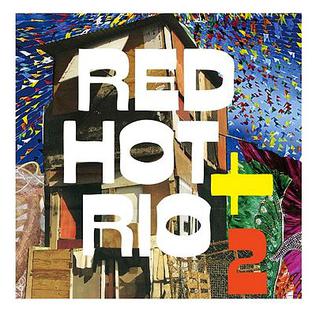
Red Hot + Rio 2 is a collaborative album released June 28, 2011 as part of the Red Hot Organization's series of tribute music records that aim to raise money for HIV/AIDS awareness and prevention. The album aimed to pay homage to the influence of the Tropicália genre and cultural movement that arose in Brazil in the late 1960s. The Tropicália movement was noted for its genre-bending sound that melded influences of 'traditional' Brazilian music like samba, forro, and Bossa Nova with international styles of pop, rock, funk, and soul music. Likewise, Red Hot + Rio 2 included collaborations of some of the Brazilian artists that pioneered the Tropicália movement along with international artists from various genres.

The 13th Annual Latin Grammy Awards was held on Thursday, November 15, 2012 at the Mandalay Bay Events Center in Las Vegas, Nevada. It was the fifth time the awards was held at this venue and in Las Vegas. It also marks the last year in the Latin Recording Academy's contract where the Mandalay Bay Events Center hosted. It is unknown if the awards will continue to be held at this location beyond 2012.

The 14th Annual Latin Grammy Awards was held on Thursday, November 21, 2013, at the Mandalay Bay Events Center in Las Vegas. This was the sixth time that Latin Grammys has been held at this location. The main telecast was broadcast on Univision at 8:00 PM EST.
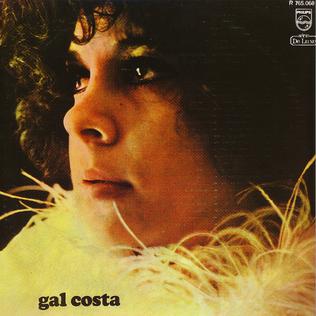
Gal Costa is the first solo album by the Brazilian singer Gal Costa, released in 1969. It was ranked the 80th best Brazilian album of all time by the Brazilian Rolling Stone magazine.
José Luis Segneri Oliveira is a Brazilian composer, saxophonist, flutist, producer, arranger and multi-instrumentalist. Oliveira became famous in the 1980s performing and recording with Caetano Veloso, Gilberto Gil, Gal Costa, Tania Maria and Cazuza.
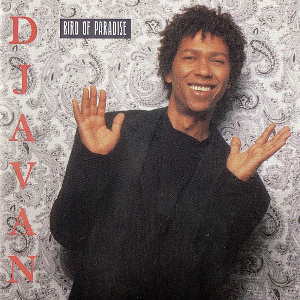
Bird of Paradise is an album by the Brazilian musician Djavan. It was released in 1988 via Columbia Records, part of a Brazilian push by the label that also included albums by Milton Nascimento (Yauaretê) and Simone (Vicio).
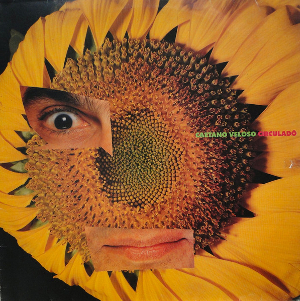
Circuladô is an album by the Brazilian musician Caetano Veloso. It was released in 1991. Circuladô was Veloso's third album to be widely distributed in the United States.
















